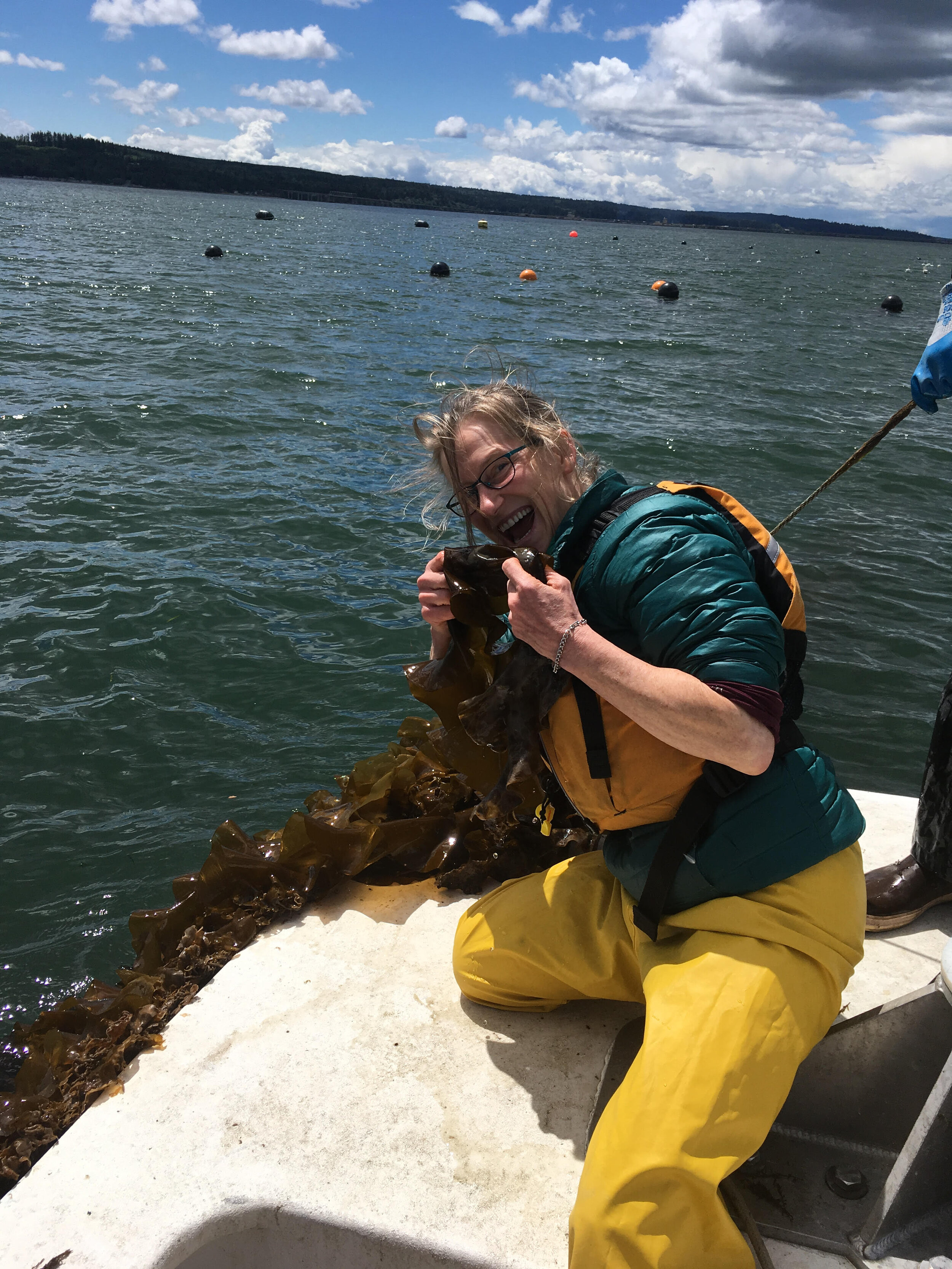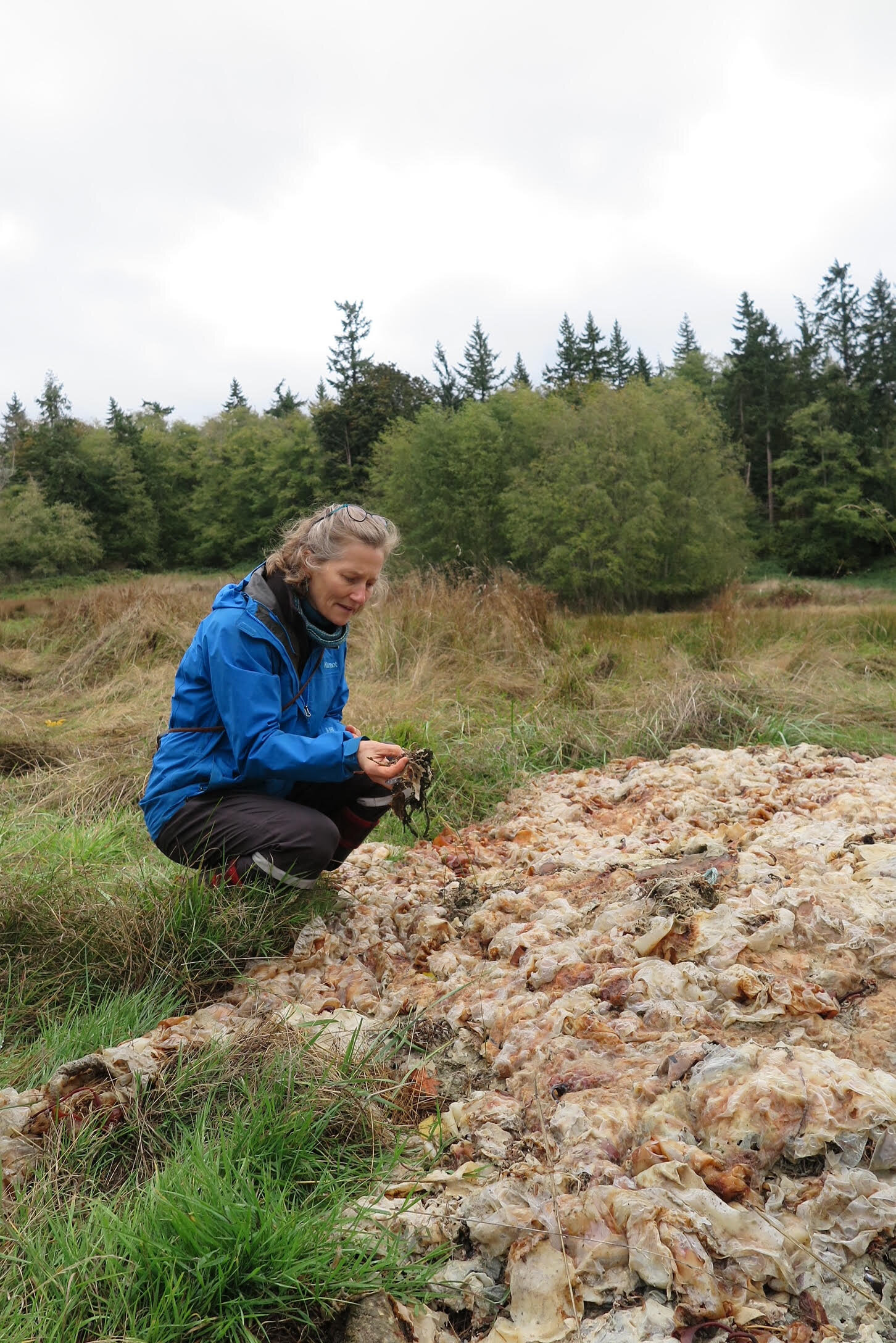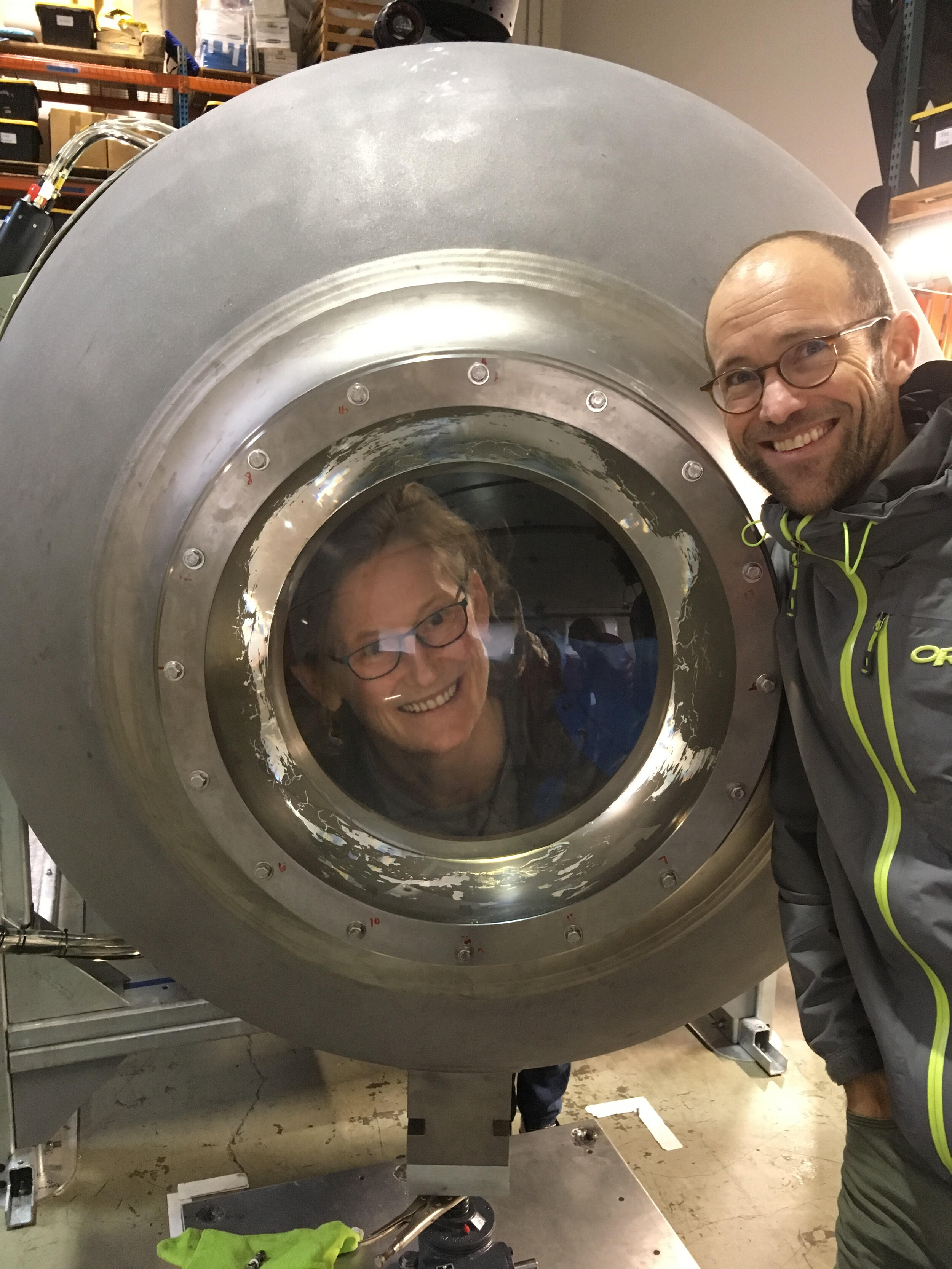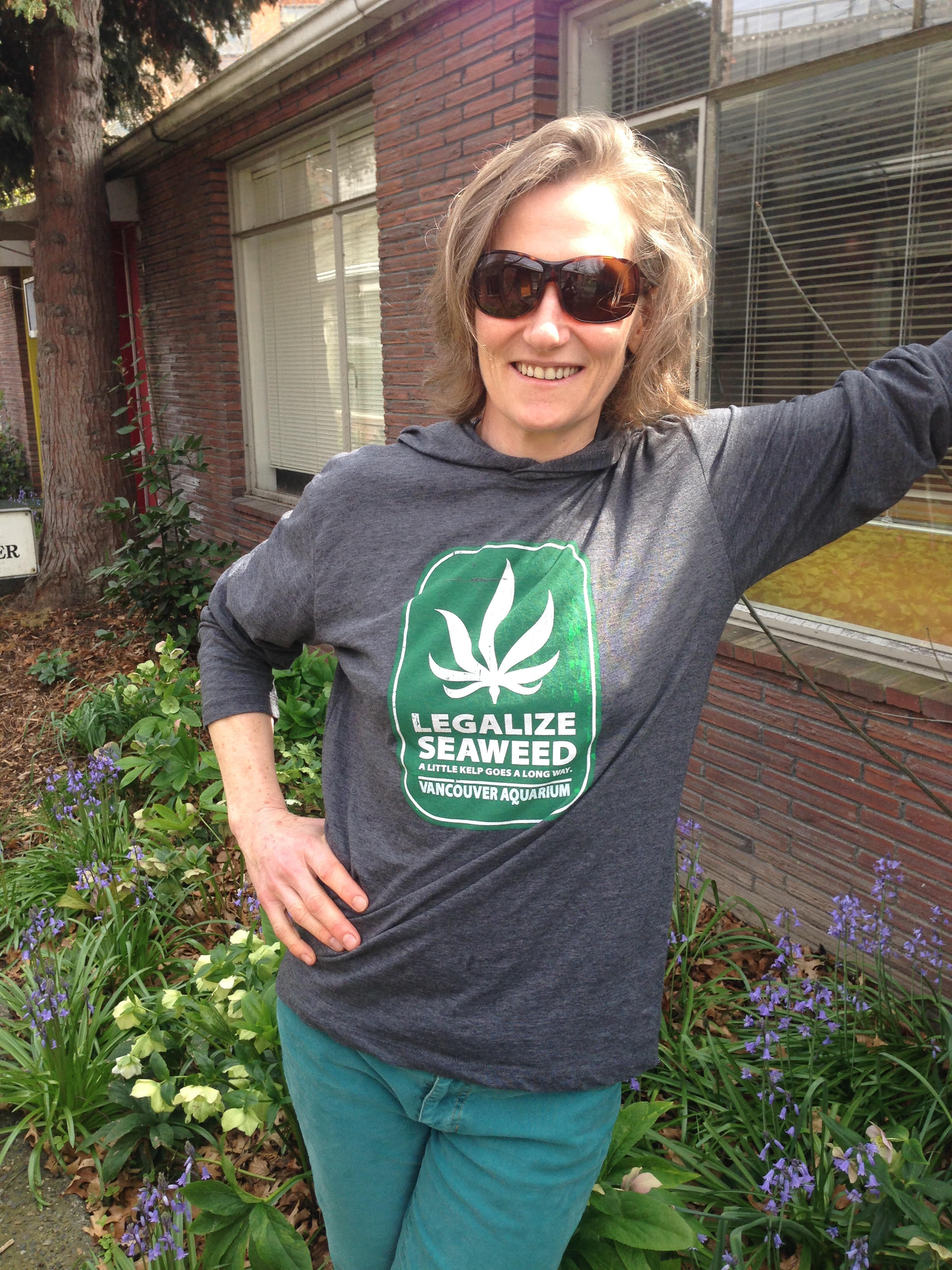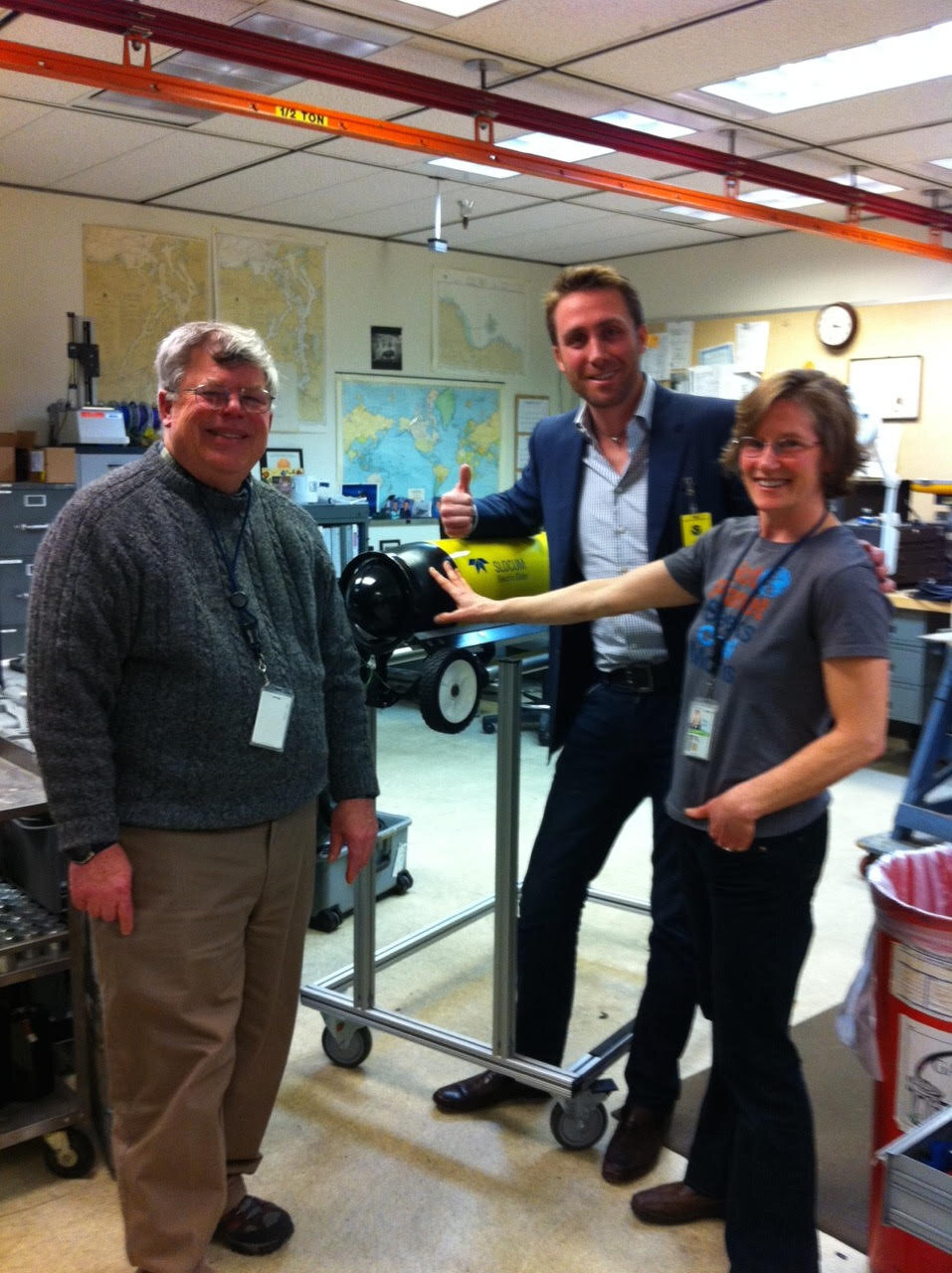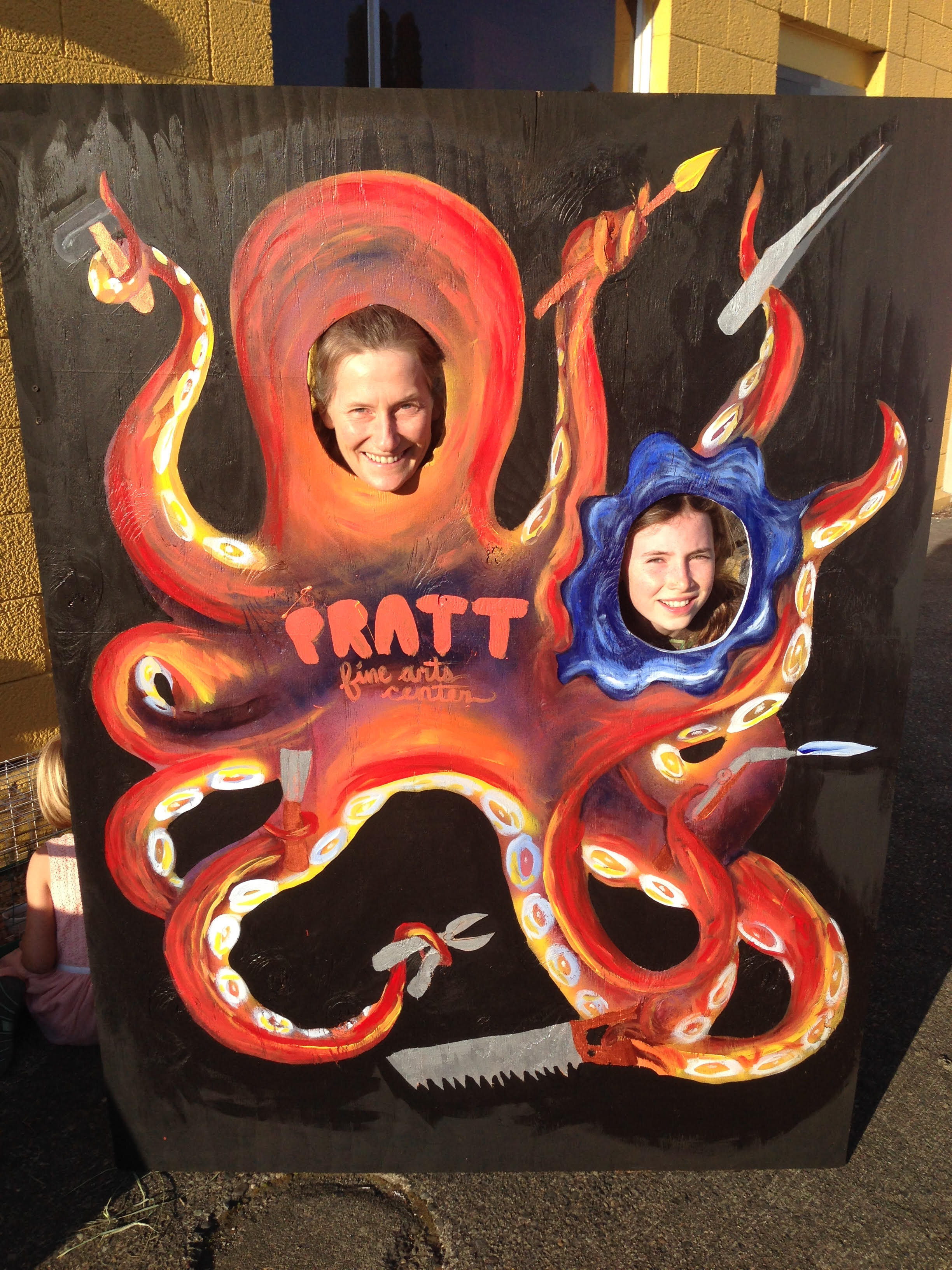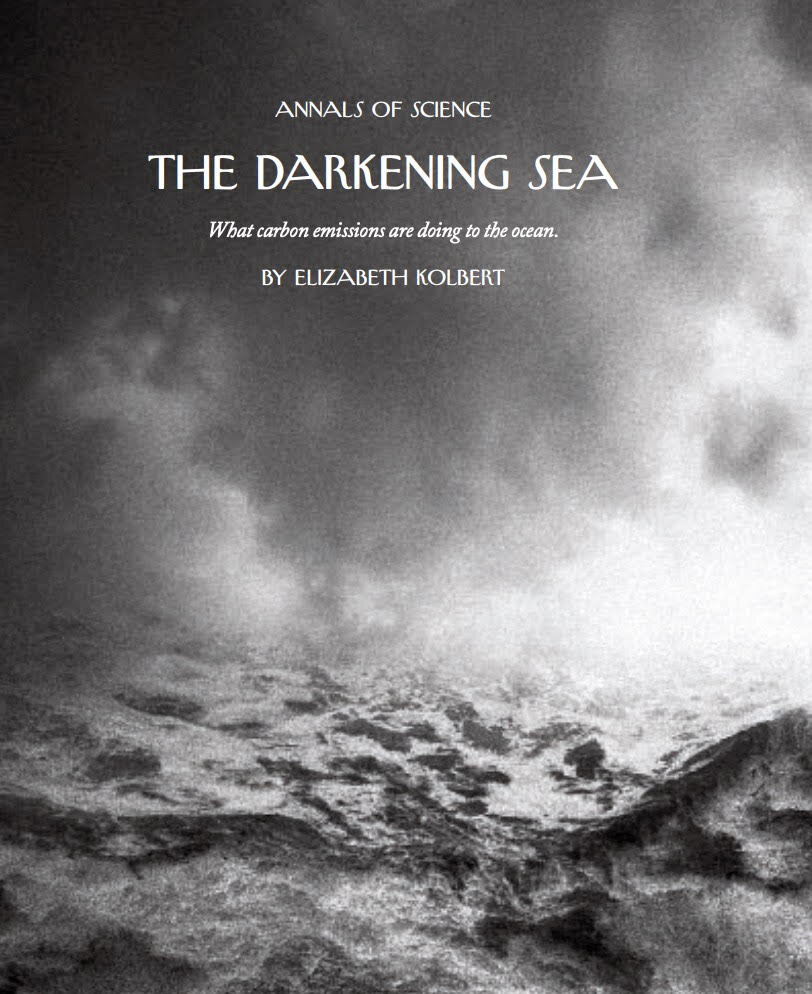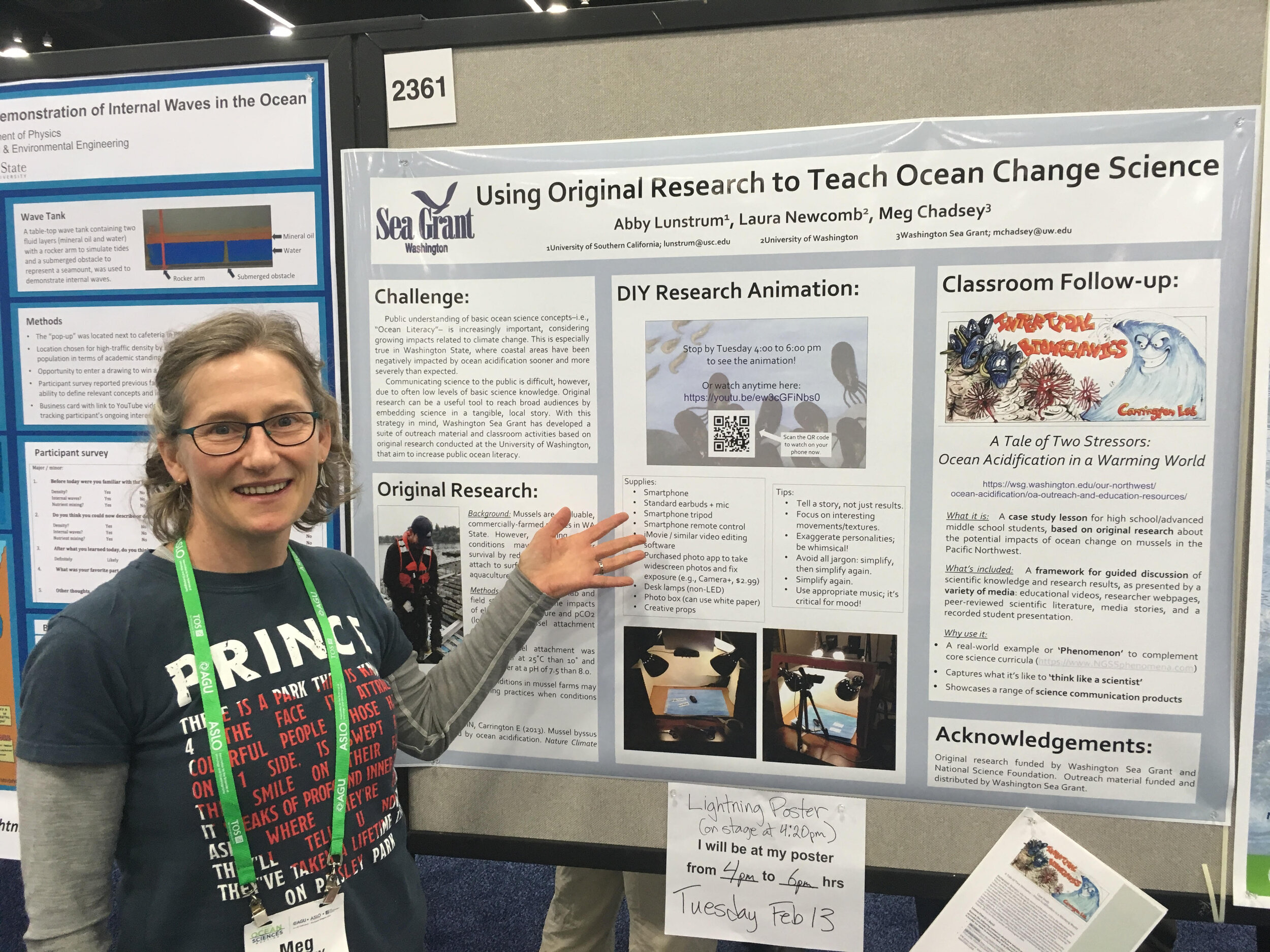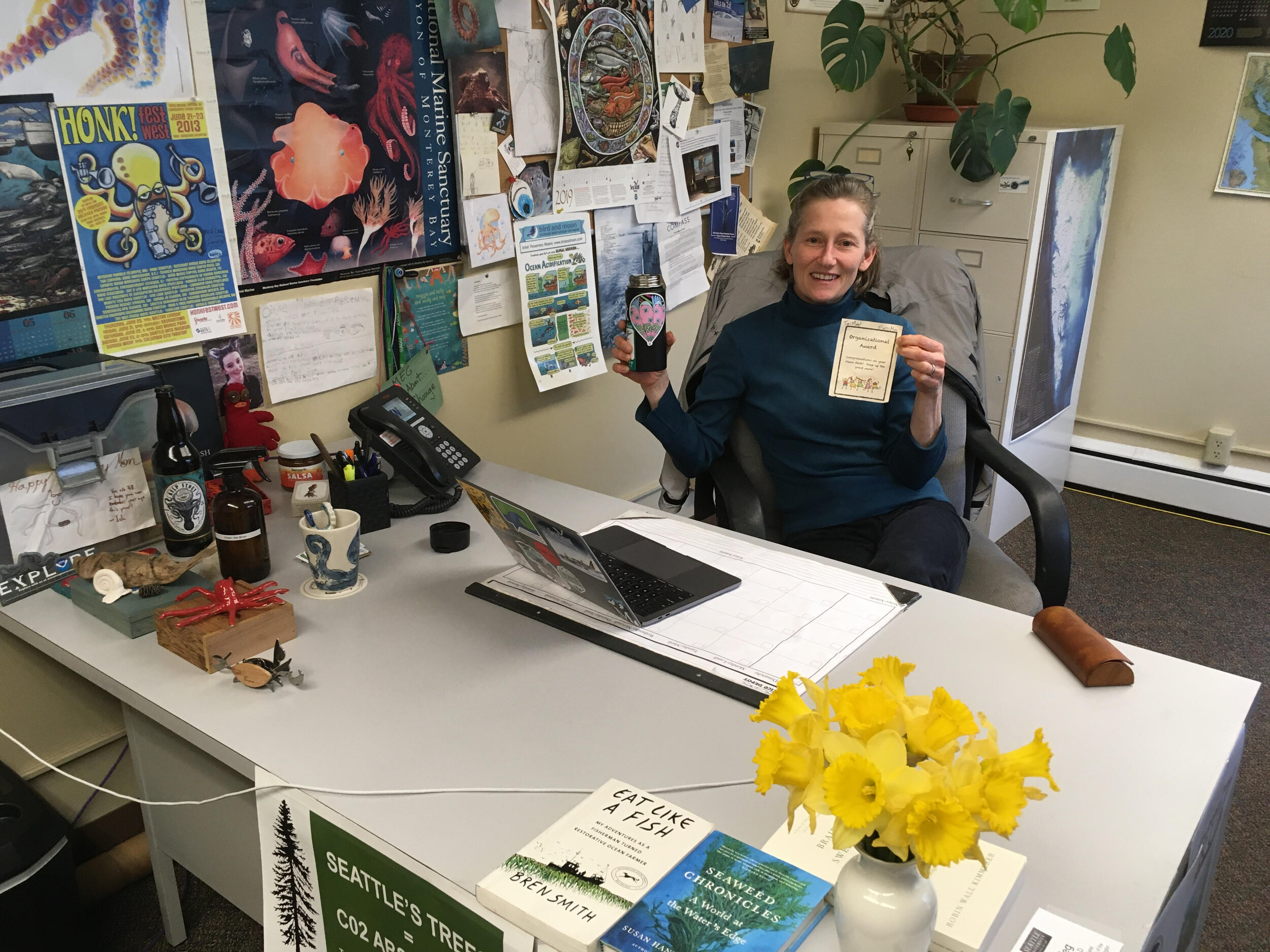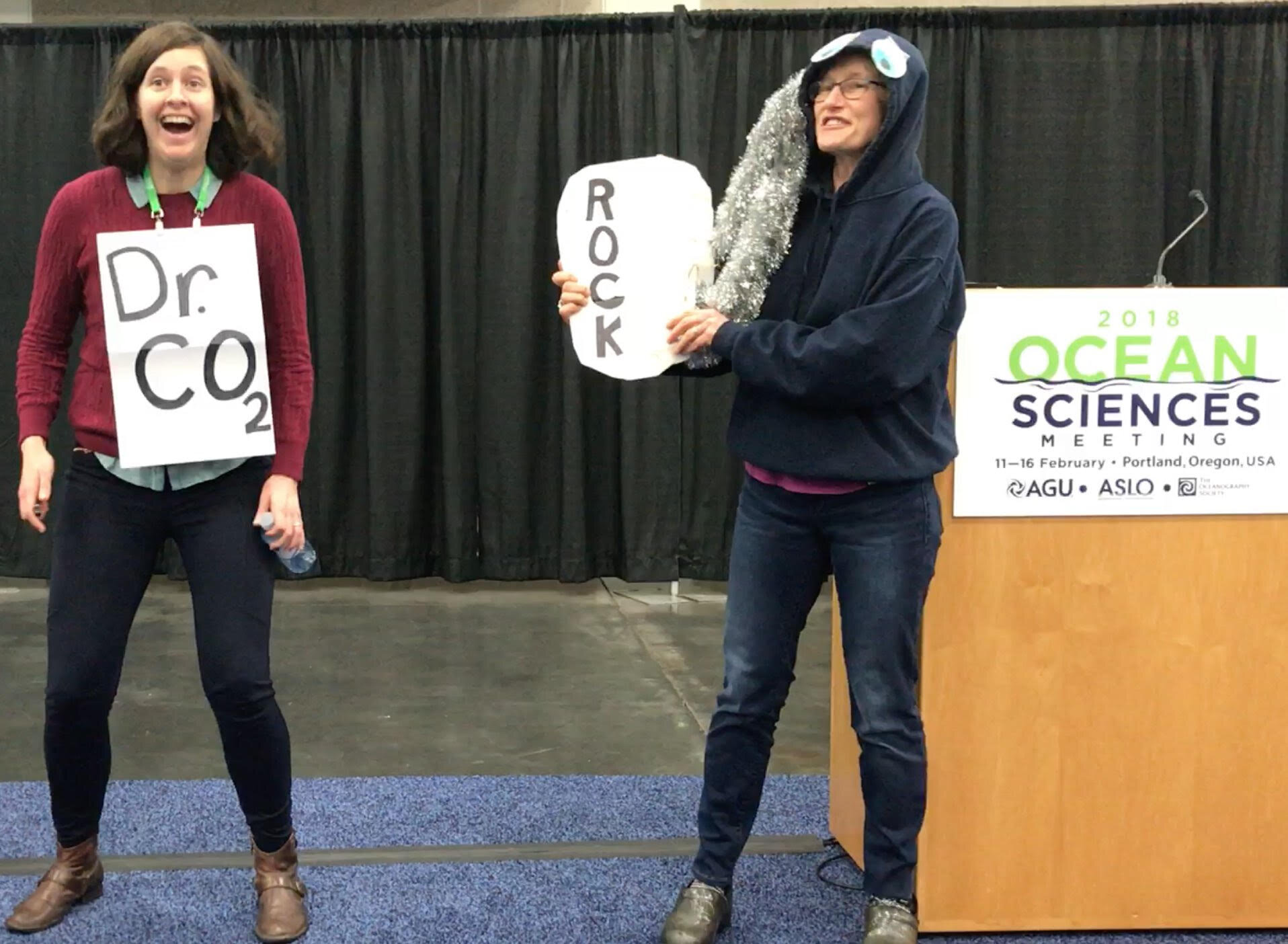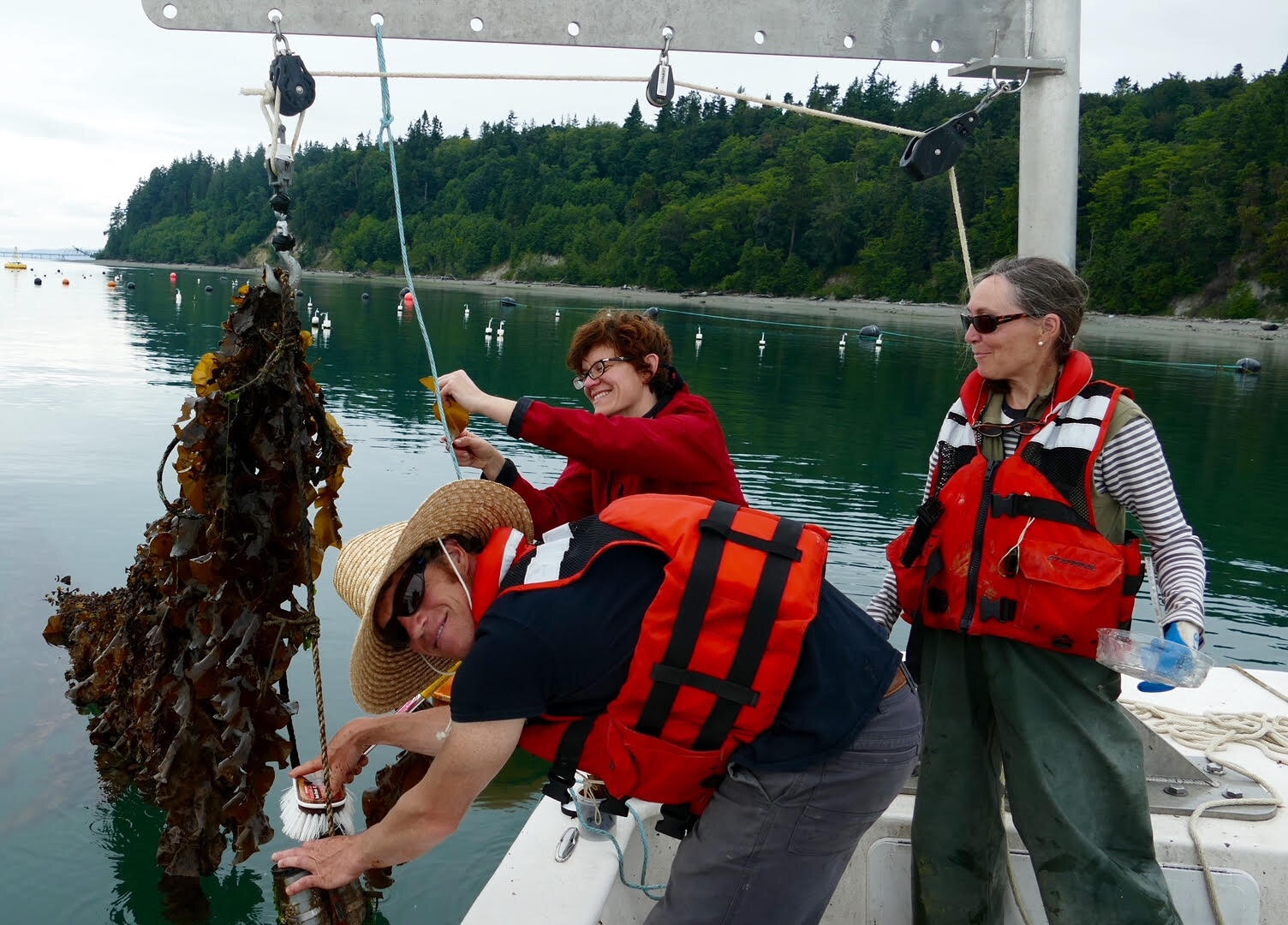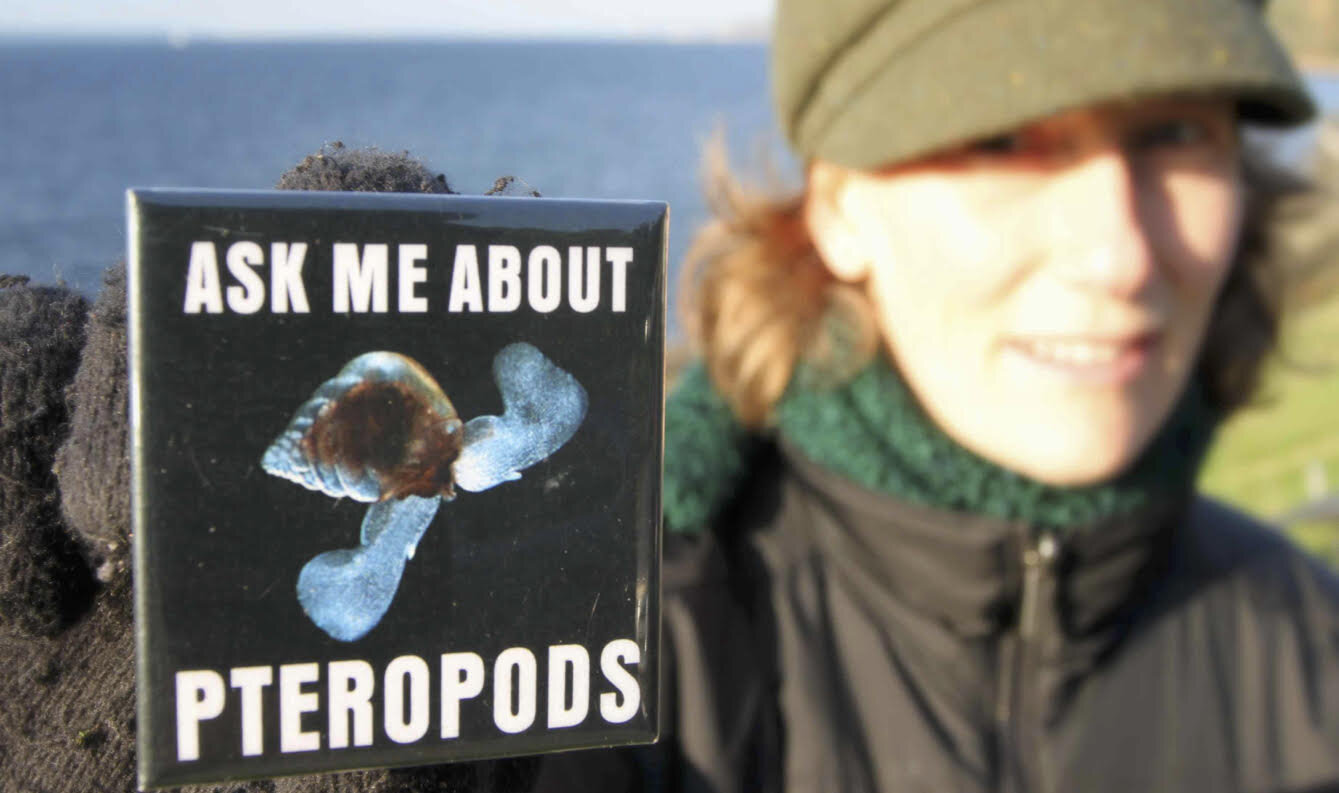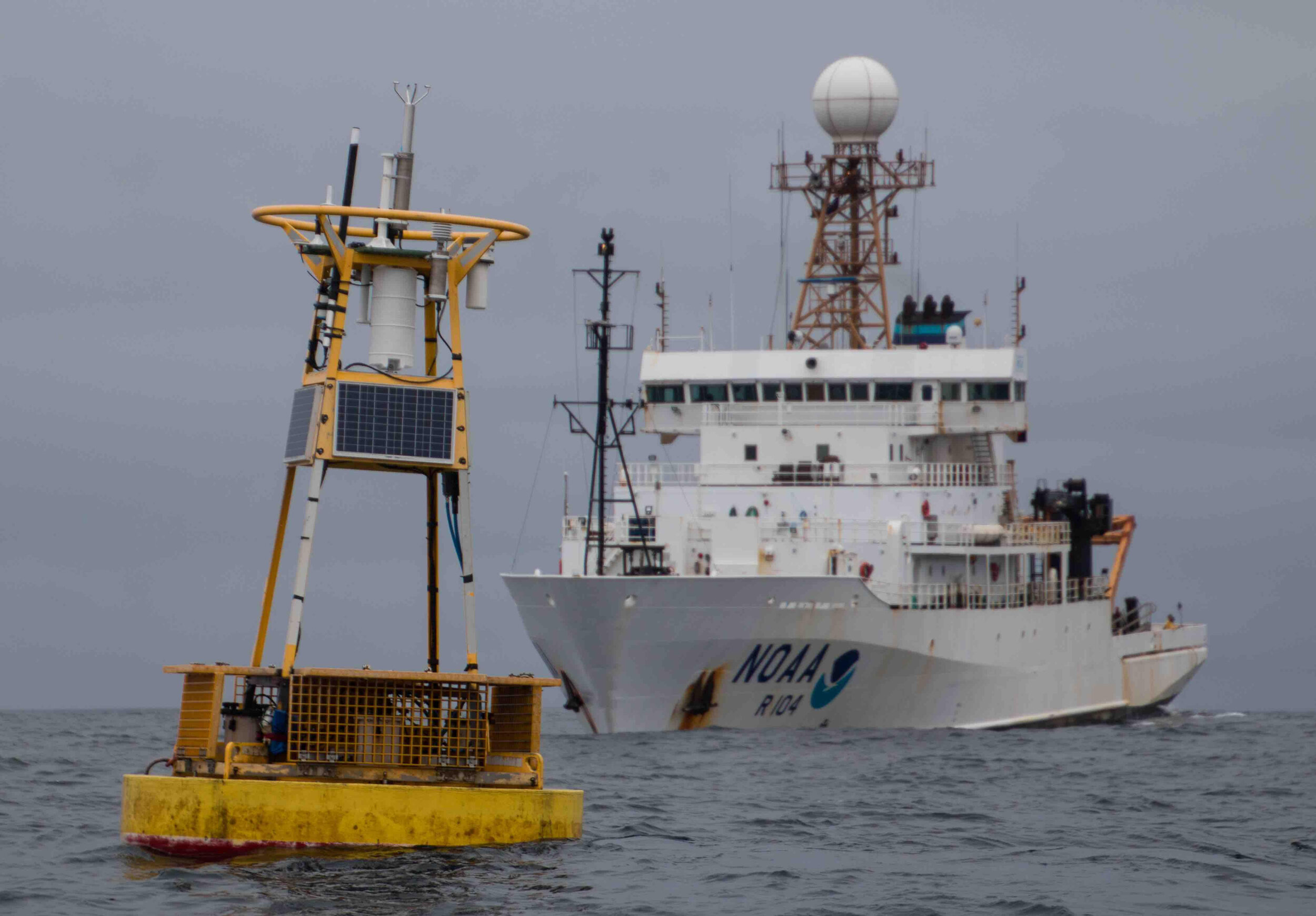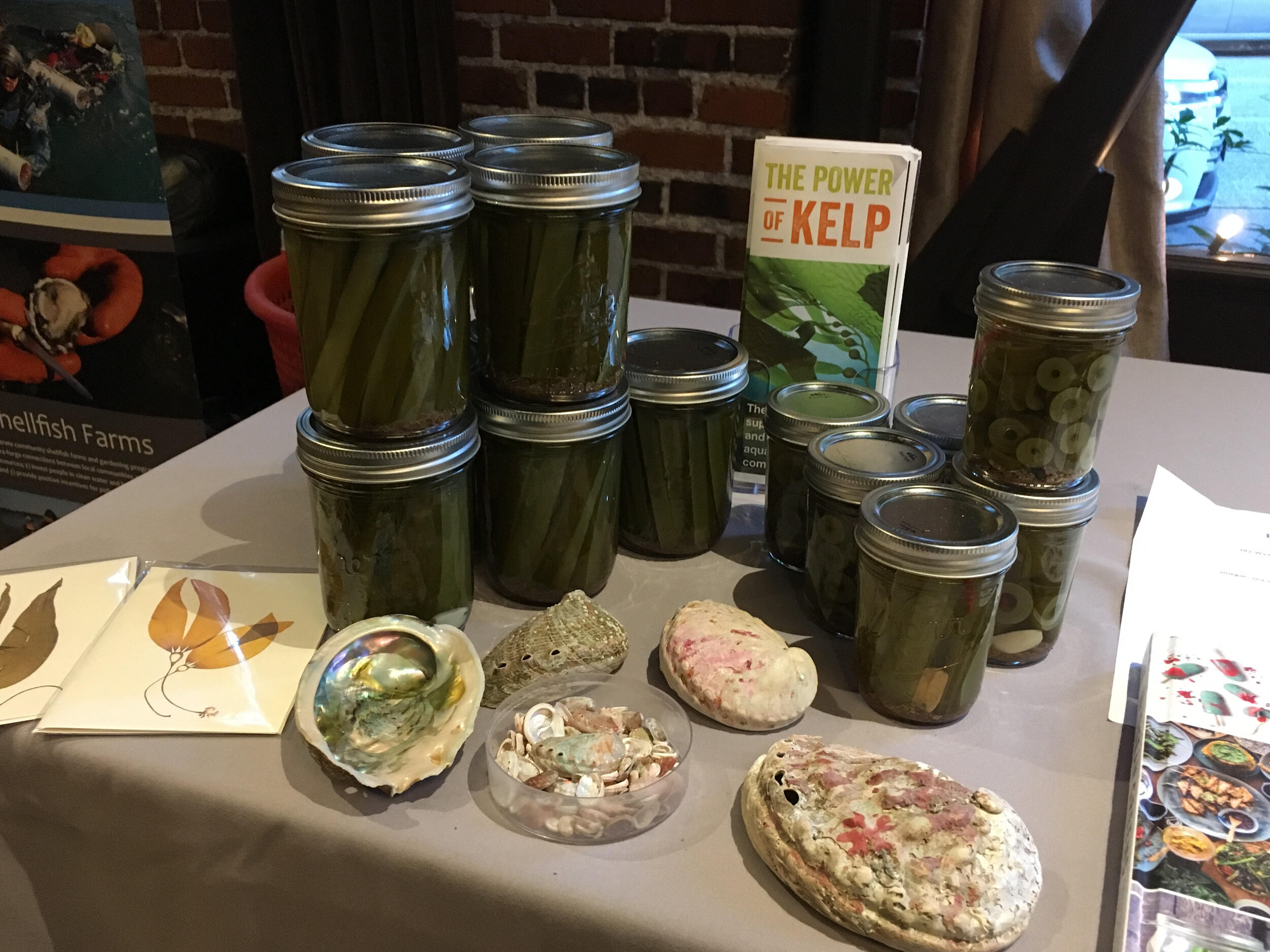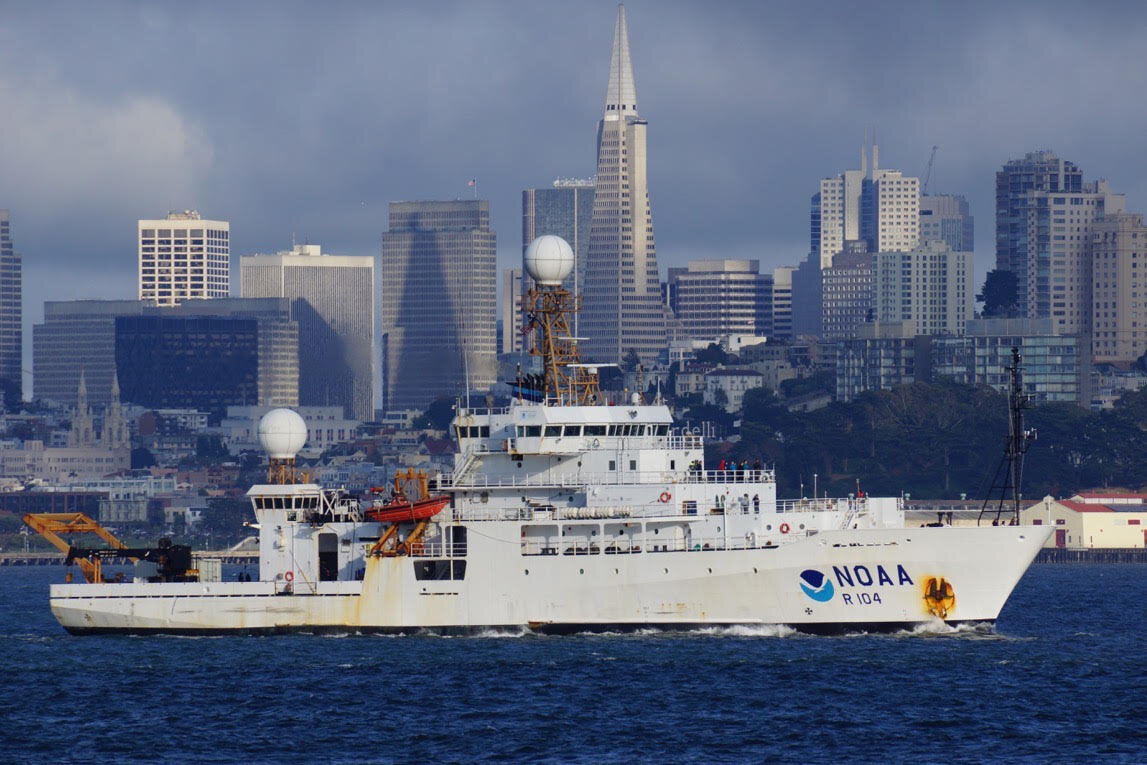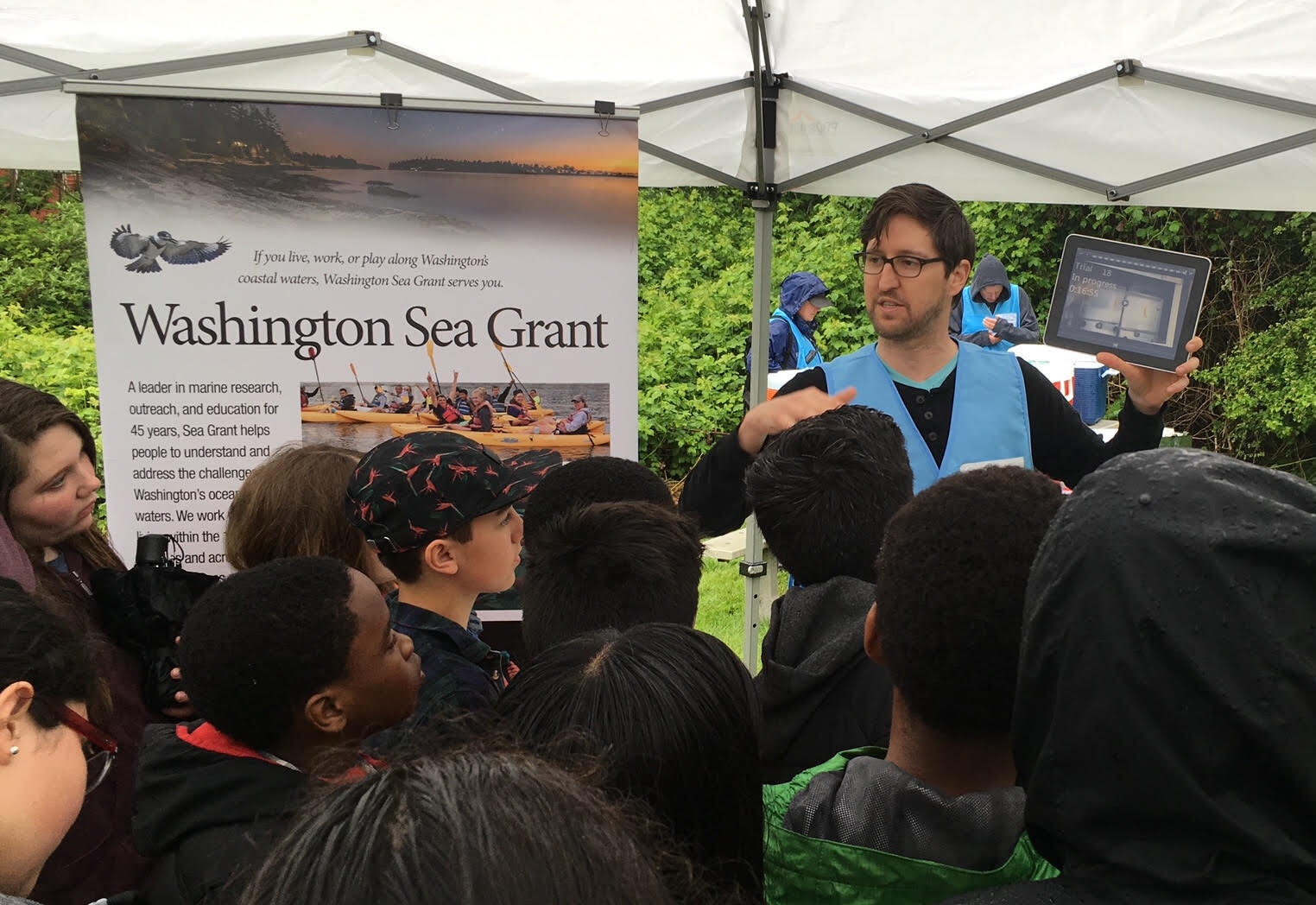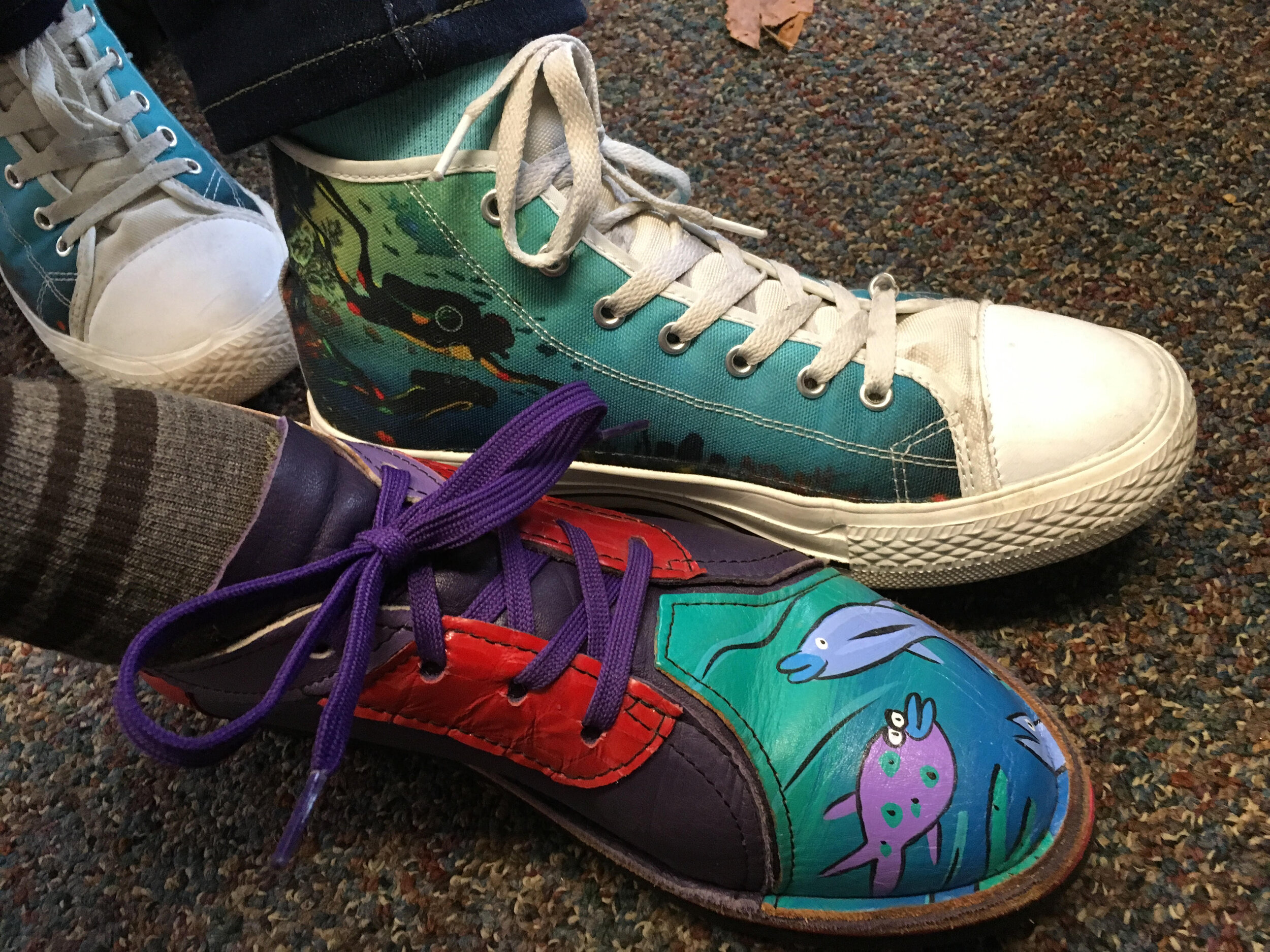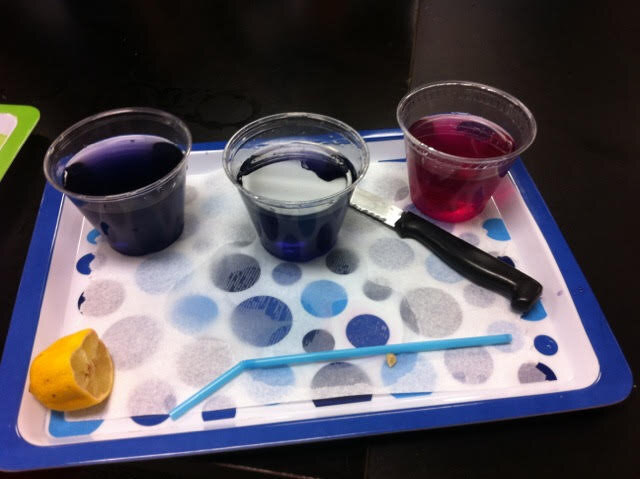Dr. MEg CHadsey: Ocean Acidification Specialist washington sea grant
Tell us about yourself!
I grew up along the shores of Puget Sound—the southern Salish Sea—and began ‘taking myself to the beach’ at an early age. My favorite pastime (until I was old enough to scuba dive) was rolling over rocks at low tide to see what was living beneath them (I still make a beeline for an exposed rock on a good minus tide—one of these days, I’m going to realize my dream of seeing an octopus in the wild!). My love for marine creatures grew into an appreciation for science and discovery in general—asking questions and sharing what I know with others.
Can you share more about your work?
My job is never boring! Washington Sea Grant is a small but mighty organization dedicated to helping people understand and address the challenges facing Washington’s ocean and coasts. But we punch above our weight by partnering with scientists, marine industries, conservation groups, resource managers, educators and the public to tackle these pressing marine issues. I’m also affiliated with NOAA’s Pacific Marine Environmental Lab, home to some of the world’s best ocean acidification scientists—some days I have to pinch myself!
How did you become interested in studying ocean acidification?
Quite by accident! I’d been visiting my parents, and was looking about for something to read on the airplane. I picked up one of their New Yorker magazines, which happened to be the issue with Elizabeth Kolbert’s seminal article about ocean acidification called ’The Darkening Sea’. I started reading it on the flight, and by the time the plane had landed, I knew what I wanted to work on. This was 2011. The article had been published in 2006! Good thing my parents never get rid of their back issues!
What do you wish everyone knew about the ocean?
I wish everyone understood that we could prevent OA from getting worse right now. We know what’s causing it (human carbon dioxide emissions), and we actually already have the knowledge and resources to transition quickly away from carbon-based fuels (coal, oil and gas) to clean energy. Society could fix this problem if we committed to doing so, and stopped listening to the entrenched interests who are telling us that there’s too much uncertainty, that it's too costly, or that it’s already too late. It’s not too late… yet.
How does your work apply to our lives?
Everyone on this planet is connected to the ocean, whether they know it or not. And we can only thrive if the ocean—which feeds us, fills our lungs with oxygen, regulates the climate, and gives our lives meaning—is healthy. Preserving and restoring ocean health motivates everything I do (even when it looks like I’m just writing a lot of emails!).
What is some of the best advice you have received from mentors?
Get more sleep? A silver lining of working from home during the COVID pandemic has been the extra hour or so of sleep I’ve been getting per night. It really makes a difference! It’s a lot harder to save the world when you’re sleep-deprived.
What advice do you have for young scientists, artists, and explorers?
Two things: 1) discover what makes your heart sing, find someone who does that thing well, and then figure out a way to work with them. Then give it everything you’ve got! 2) If what you’re doing isn’t making you happy, don’t be afraid to ‘change horses’, even if you’ve invested a lot to get where you are.
Please share a favorite memory from your work! Not long after I started working for Washington Sea Grant, Jacques-Yves Cousteau’s grandson Philippe Cousteau Jr. reached out to our organization for assistance with an educational series he was filming about ocean acidification. I got to help his ‘EarthEcho International’ team identify subjects and locations for their video. I couldn’t believe it! I had been such a Cousteau fan growing up.
Follow Meg’s work with Washington Sea Grant on Facebook and Twitter.
Thank you for sharing with us, Meg! Keep inspiring others to protect our ocean and being a leader for this pressing science.
We always love to be introduced to new ocean explorers. If there’s someone you’d like to see an interview from, send us your ideas!
